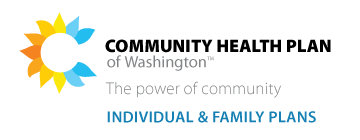What is COPD?
COPD stands for Chronic Obstructive Pulmonary Disease.
Chronic: Lasting a long time or repeating
Obstructive: Blocking
Pulmonary: Related to the lungs
COPD includes a group of lung diseases that block airflow and make it difficult to breathe, like emphysema and bronchitis. Symptoms include shortness of breath and chronic cough, especially with mucus.
As COPD progresses, it can make breathing 10 to 20 times harder than for someone with healthy lungs. Doctors use imaging tests, lung function tests, and blood tests to diagnose COPD.
There are four stages of COPD, depending on how severe it is.
Mild. Your airflow is limited, but you don’t always notice it. You cough and have mucus sometimes.
Moderate. Your airflow is noticeably limited. You’re often short of breath after exercise or similar activity. This is the point where most people notice that something is wrong.
Severe. Your airflow and shortness of breath are worse. You can’t do normal exercise anymore. Your symptoms flare up often.
Very severe: Your airflow is very limited. Your flareups are regular and intense, and your quality of life is poor.
How can I manage my COPD?
Managing COPD means keeping your breathing regular and staying healthy. Though there are things you can do on your own to manage your COPD, we strongly recommend working together with your care team.
Talk to your doctor.
Being diagnosed with COPD can be very stressful. We encourage you to talk to your doctor about your symptoms and make a care plan together.
A thorough plan accounts for things that trigger your COPD, your schedule, how active you are, your cultural background, and your other medical needs.
Your care plan may touch on areas like:
- Give up smoking
- Nutrition
- Exercise
- Get rest
- Stress management
Learn healthy habits and skills.
As part of your care plan, there are skills you can learn that will help you manage your COPD. They include:
- Using oxygen appropriately
- Retraining your breathing
- Techniques to bring up mucus
- Having an action plan in case of emergency
- Taking your medications correctly
How Community Health Plan of Washington (CHPW) can help
As your health plan, CHPW wants you to feel your best every day. You may want to take advantage of the following resources:
- Health Assessment. A health assessment looks at your whole health through a series of questions about your physical, mental, and emotional health. CHPW can give you a health assessment over the phone.
- CHPW’s Care Management team can help you build healthy daily habits that are shown to help people with COPD feel better. Case Managers are available to provide education, support and coordinate care.



